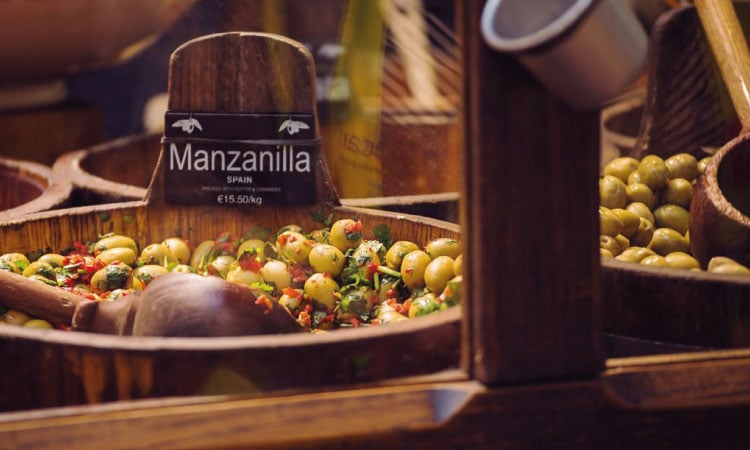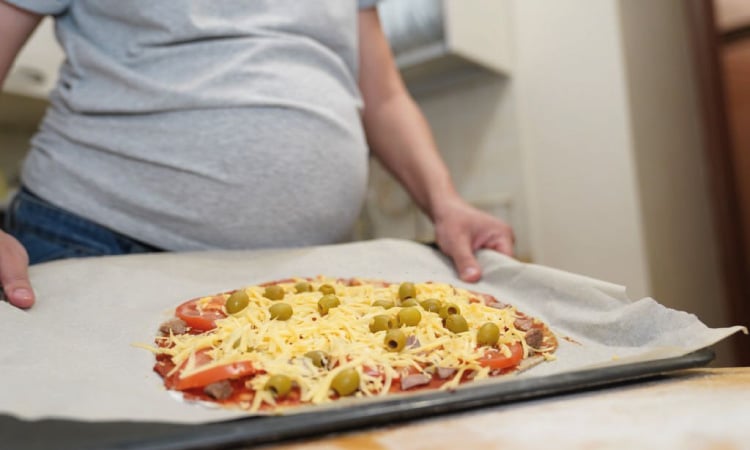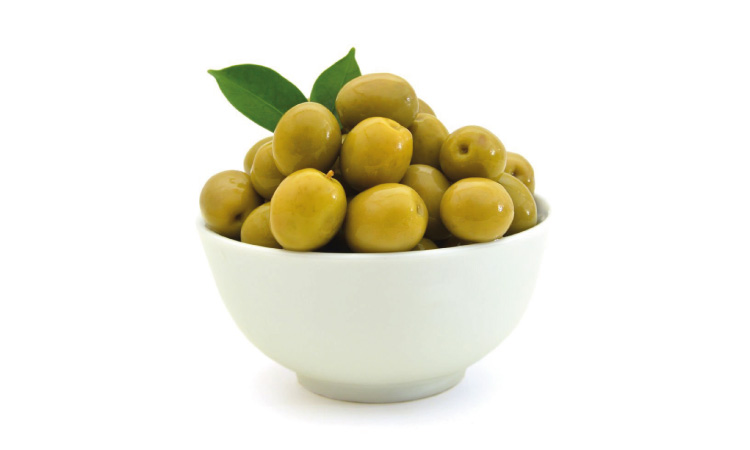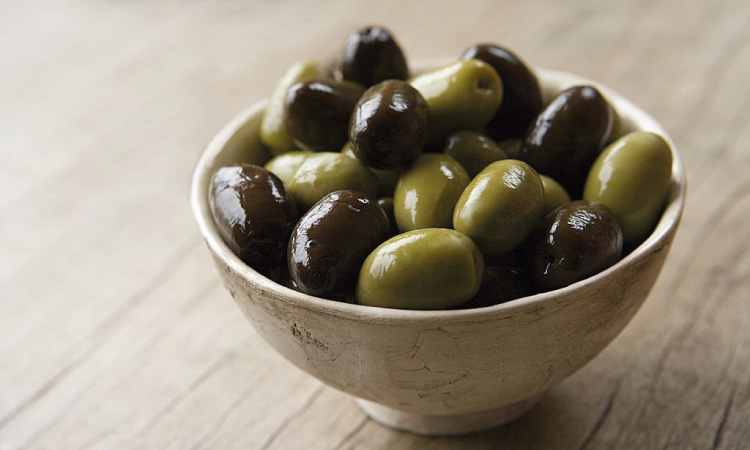Olives during pregnancy: Are they safe to consume? The antioxidants and vitamin E found in olives make them potent. Their potassium content and dietary fiber also add to their health benefits. They are also known to lower cholesterol levels. None of these benefits ensures its safety during pregnancy. Is it safe to eat olives during pregnancy? During pregnancy, not all nutritious and healthy foods are safe. Even nutritional foods may contain components that cause pregnancy complications or harm to the fetus.
What Are Olives?
Olives are the fruit of the olive tree. They are an important ingredient in many Mediterranean dishes. Sliced or whole, they are often used for recipes or pressed into oil. Grocery stores sell olives in a variety of forms. They are available canned and bottled in salt solutions or plain water. Depending on your location, you can find fresh olives in a supermarket or Mediterranean specialty shop.
Olives mature at different rates so they are not all ready to be picked at the same time. Olives are picked at different stages depending on their purpose. For instance, olives intended for processing as Green olives will be harvested when they are fully mature, but still green. The Kalamata olive, for example, grows darker or more purple over time when left on the tree for a long time. Olives can also be left on trees for a longer period until they become ripe.
Fresh olives are not typically eaten as they are extremely bitter. Instead, they are fermented and cured. Unripe olives contain more bitter compounds like oleuropein, which are removed during this process. Olives are typically harvested in the fall and winter. However, because these are brined before consumption, they are available year-round.
Related Reading: 13 Amazing Benefits Of Olive Oil During Pregnancy
Types Of Olives

Olives come in a variety of types, and they are widely used in Mediterranean cuisine. Despite having the same basic properties, their tastes, appearances, and ways of use are different. The following are 5 types of olives that you need to be familiar with.
1. Kalamata olives
Dark purple, Kalamata olives usually fall into the category of larger olive varieties. They are considered the kings of olives. There are many varieties of olives on the market, but the Kalamata olive is probably one of the most common. They are often included in Italian cuisine, especially pizza. Furthermore, they’re relatively high in heart-healthy fats, calcium, iron, and antioxidants, making them among the healthiest of all olives. Calories in Kalamata olives are moderate – roughly 40 calories per 10 olives1. Therefore, kalamata olives during pregnancy are a great addition to the diet.
2. Castelvetrano olives
This variety of olive has a much milder flavor than other varieties. Castlevetrano olives are large and green in appearance, with an appealing buttery, crunchy texture and mild flavor. They are not fermented like many other varieties of olives. Instead, they’re bathed in water and lye for two weeks. The process preserves their firmness and removes bitter flavors. Castelvetrano olives have a high-fat content, and they are incredibly salty. Castello olives are rich in phenolic compounds2.
Calculate Due Date With LMP
3. Nyon olives
The Nyon olive is native to southern France. Olives of this variety are black. The fruit is characterized by large pits, a meaty flavor, and a low degree of bitterness. It is packed with nutrients. Furthermore, it is rich in monounsaturated fats, vitamins E, antioxidants, polyphenols, protein, and oleic acid3.
4. Gaeta olives
Gaeta olives are remarkably similar to Kalamata olives. You can eat Gaeta olives alone, with a salad, or mix them into seafood recipes or sauces to add a bitter, salty taste. One of the most popular olives in the world today. There are two types: brine-cured or dry-cured, and they are small, tangy, and purplish-brown. A mild salty and tart flavor distinguishes them and they are very fleshy4.
5. Manzanilla olives
Manzanilla olives originated in Spain and are known as the queen of green table olives. Manzanilla olives during pregnancy are safe and beneficial. Manzanilla olives have a crisp texture and a flavor similar to almonds. In many grocery stores, you can purchase manzanilla olives that come stuffed with red pimentos. Pimentos are a particular kind of sweet red pepper, the same kind that’s used in pimento cheese5.Pimento stuffed olives while pregnant are safe as long as they are properly canned.
Nutritional Profile Of Olives
Pregnant women, especially, need all the vitamins and minerals that olives provide, which keeps their bodies healthy, fit, and beautiful, thus making them a must have on your list of superfoods during pregnancy. Olives do not have much protein in them. Olives have a high percentage of fat compared with other fruits, but it is mostly healthy monounsaturated fat.
According to a source:
- Copper and vitamin E are found in trace amounts in olives
- Iron and B vitamins are also present in reasonable amounts
- It is a good source of magnesium, calcium, and potassium
- Approximately 75–80% of olives are water
- Olives have a fat content of 10 to 15%
- A 100g serving of olives has about 59 calories
- Olives contain 4-6% carbohydrates, mostly in the form of fiber
Are Olives Safe During Pregnancy?

Yes, olives are safe to eat during pregnancy. Rare reports of allergy have been recorded. When it comes to eating olives while pregnant, moderation is the key. The consumption of 6–7 olives per day during pregnancy can be beneficial.
The curing process to which olives are subjected increases their salt content, so if you follow a low-salt diet you may need to moderate the amounts you eat.
However, olive leaves should not be consumed during pregnancy because of the potential risk of allergic reaction. Likewise, even though stuffed olives are delicious and nutritious, it is not always safe to have them during pregnancy. Stuffed, cured olives from a deli should be avoided.
Health Benefits Of Olives During Pregnancy
Pregnant women can benefit from the health benefits of olives. Consuming olives during pregnancy can provide more than just vitamins. Since it ensures that the fetus gets all of the important nutrients, it is beneficial not only for the health of the mother but also for the development of the baby.
Here are some of the benefits of eating olives during pregnancy:
1. Good source of Iron
Black olives are an excellent source of iron6. Iron intake is very important during pregnancy since pregnant women are more prone to iron deficiency anemia. A combination of their increased blood volume – which can rise to 50 percent – and an inadequate intake of iron hinders the production of sufficient RBCs. This results in anemia. Therefore, eating black olives during pregnancy may help to reduce anemia to some extent.
2. May support bone health
Specific compounds found in olives aid in preventing bone loss. Oleuropein and hydroxytyrosol, the two polyphenols found in olives, may play an important role in the formation and maintenance of bone. They may also help treat osteoporosis symptoms7. Women who consume insufficient calcium during pregnancy tend to lose calcium from their bones. As a result, osteoporosis risks increase. Osteoporosis is characterized by a decrease in bone mass and bone density. It increases the risk of fractures. In Mediterranean countries, osteoporosis rates are lower8. The cuisine of those countries is rich in olives and olive oils.
Related Reading: Top 10 Calcium Rich Foods For Pregnancy
3. Helps to regulate blood pressure
Olives are believed to help control blood pressure when consumed daily. Olives contain oleic acid, a fatty acid that is associated with improved cardiovascular health9. It may regulate cholesterol levels and protect LDL (bad) cholesterol from oxidation. Studies have found that olive oil can lower blood pressure. This property of olives is highly beneficial during pregnancy.
4. Contribute to gut health
Olives are one of the most well-known fermented foods. In addition to their taste, pickled olives have some of the same probiotic qualities as other fermented foods. Beneficial bacteria and enzymes are added to the intestinal flora by eating these foods. As a result, your gut microbiome and digestive system become healthier. They also help to improve your immunity during pregnancy. So, eating pickled olives during pregnancy could help maintain healthy bacteria in the body10.
5. Rich in antioxidants
Polyphenols, which are plant compounds with strong antioxidant properties, are abundant in olives11.These compounds reduce the risk of chronic diseases like atherosclerosis. When it comes to pregnancy, these antioxidants enhance the mother’s immunity. Consuming olives during pregnancy helps protect your child against allergies and asthma since olives contain antioxidants12.
Related Reading: 11 Common Complications During Pregnancy And Delivery
6. Helps prevent cancer
The consumption of olives reduces the risk of cancer. Perhaps this is the result of their high antioxidant and oleic acid contents. The compounds in these substances are found to inhibit the growth of breast, colon, and stomach cancer cells13.
7. Supports heart health

While olives are a good source of fats, they don’t have any hazardous effect on arteries the way other fats do. The majority is a beneficial mono-unsaturated variety called oleic acid. This fatty acid is associated with a reduced risk of heart disease14.
8. Aid in blood sugar control
In addition to monounsaturated fat, olives contain antioxidants, which are effective in preventing and managing diabetes. Furthermore, polyphenols have been linked to the control of blood-sugar spikes, which can cause diabetes. A new study has found that olive oleuropein may enhance insulin secretion, potentially preventing blood sugar spikes. Those who are diabetic or at risk of gestational diabetes can benefit from this property of olives.
Related Reading: Everything About Artificial Sweeteners During Pregnancy
9. Enhance skin health
It is common for pregnant women to experience skin issues such as darkening, dryness, etc. Olive contains oleic acid, which is good for the skin. The fatty acid oleic acid keeps the skin supple and elastic. Olives also contain Vitamins E and A, which are beneficial to skin health. Vitamin E prevents the formation of free radicals which can cause skin diseases. Applying olive oil can also moisturize and boost the health of the skin during pregnancy.
10. Relieve pain
Nonsteroidal anti-inflammatory drugs (NSAIDs) can be found in trace amounts in Manzanilla olives. In addition to reducing pain, fever, and preventing blood clots, these compounds reduce inflammation15. Thus, consuming Manzanilla olives during pregnancy may contribute to reducing inflammation and thus relieve joint pains and other common aches during pregnancy.
Risks And Precautions When Eating Olives During Pregnancy
Olives provide many health benefits, but they are still not 100% safe. When eating olives during pregnancy, one must be aware of the following risks and precautions should be taken:
Risks of eating olives:
- Risk of acrylamide: Certain types of olives, particularly California black olives, can be contaminated with a carcinogenic substance called acrylamide during processing and canning. Research is being undertaken to develop a way of treating olives that won’t cause acrylamide to form
- Risk of sodium: Canned olives are often packed in brine, which makes them high in sodium (salt). It contains about 0.6g of salt per five olives16. A high sodium diet during pregnancy contributes to several complications. It can contribute to cardiovascular (heart-related) disease. Fresh olives are a healthier choice if you are watching your sodium intake
- Risk of heavy metals: Olives may contain heavy metals and minerals like Cd, Co, Cr, Cu, Fe, Zn, Ni, and Pb17. Environmental pollution is the root cause. Consuming a high quantity of heavy metals may harm your health, bring about fetal abnormalities and increase your risk of cancer. The levels of these metals in olives are generally well below the permissible limit. Eating too many olives during pregnancy, however, can be dangerous
Related Reading: 10 Danger Signs Of Pregnancy To Watch Out For
Precautions of eating olives:
- Store properly: Canned olives are generally safe to eat if properly stored. Make sure cans are upright. Keep them out of direct sunlight. Cold temperatures can destroy the flavor of olives, so olives should never be stored in the refrigerator. Store it in a cool, dry place where humidity levels are low. If properly stored, olives can last up to several months
- Do not eat olives if you suspect they are spoiled: Olives are usually preserved in brine with salt and other ingredients. Bacteria can multiply quickly in these olives if they are exposed to air. Bacteria produce toxic substances. This can result in botulism18, which poses serious risks to a pregnant woman. If you find any signs of spoilage in canned olives, such as mold growth, discoloration, or unusual odors, throw them away immediately
Things To Keep In Mind

While including olives in your pregnancy diet, you should keep the following things in mind:
- The traditional cured (not heat-treated) olives from a deli should not be eaten
- It is advisable to avoid eating olives from open containers like those in a buffet or olive bar
- Pregnant women are advised to eat only heat-treated olives (straight from a jar or can). In early pregnancy, the first trimester, and beyond, heat-treated olives are safe to consume
- Olives in brine may be safer to eat than those in oil or marinade
FAQs
It is possible to stuff olives with other foods. Popular stuffed olives include pimento-stuffed green olives, cheese-stuffed queen olives, and anchovy-stuffed ones.
It is safe to eat stuffed olives during pregnancy if the stuffed olives are heat-treated and the stuffing is also heat-treated. It is, however, best to avoid stuffed, cured olives from a deli since the olives won’t be heat-treated nor will the stuffing.
It is best to stay away from soft blue cheese and other fillings that can be dangerous during pregnancy.
When consumed before their expiration date, canned olives contain the same amount of nutrients as fresh olives. Pregnant women can consume good branded canned olives without concern.

